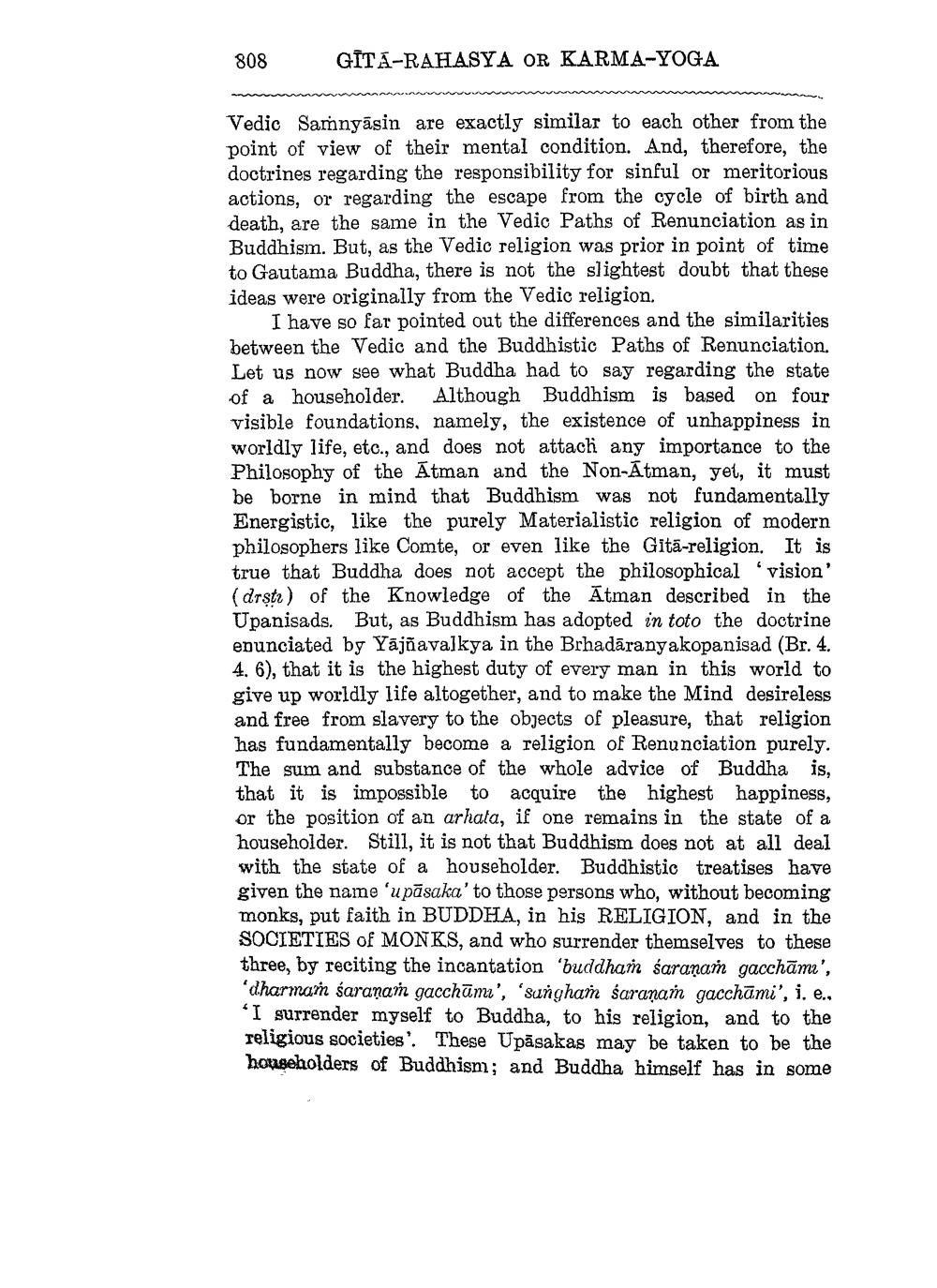________________
808
GITA-RAHASYA OR KARMA-YOGA
Vedic Samnyāsin are exactly similar to each other from the point of view of their mental condition. And, therefore, the doctrines regarding the responsibility for sinful or meritorious actions, or regarding the escape from the cycle of birth and death, are the same in the Vedic Paths of Renunciation as in Buddhism. But, as the Vedic religion was prior in point of time to Gautama Buddha, there is not the slightest doubt that these ideas were originally from the Vedic religion.
I have so far pointed out the differences and the similarities between the Vedic and the Buddhistic Paths of Renunciation. Let us now see what Buddha had to say regarding the state of a householder. Although Buddhism is based on four visible foundations, namely, the existence of unhappiness in worldly life, etc., and does not attach any importance to the Philosophy of the Atman and the Non-Ātman, yet, it must be borne in mind that Buddhism was not fundamentally Energistic, like the purely Materialistic religion of modern philosophers like Comte, or even like the Gitā-religion. It is true that Buddha does not accept the philosophical vision' (drst) of the Knowledge of the Ātman described in the Upanisads. But, as Buddhism has adopted in toto the doctrine enunciated by Yājñavalkya in the Brhadāranyakopanisad (Br. 4. 4. 6), that it is the highest duty of every man in this world to give up worldly life altogether, and to make the Mind desireless and free from slavery to the objects of pleasure, that religion has fundamentally become a religion of Renunciation purely. The sum and substance of the whole advice of Buddha is, that it is impossible to acquire the highest happiness, or the position of an arhata, if one remains in the state of a householder. Still, it is not that Buddhism does not at all deal with the state of a householder. Buddhistic treatises have given the name 'upāsaka' to those persons who, without becoming monks, put faith in BUDDHA, in his RELIGION, and in the SOCIETIES of MONKS, and who surrender themselves to these three, by reciting the incantation buddhaṁ saranan gacchāmi', dharma saranam gacchūmi', 'sungham saranam gacchūmi', i. e.. I surrender myself to Buddha, to his religion, and to the religious societies'. These Upāsakas may be taken to be the honseholders of Buddhism; and Buddha himself has in some




